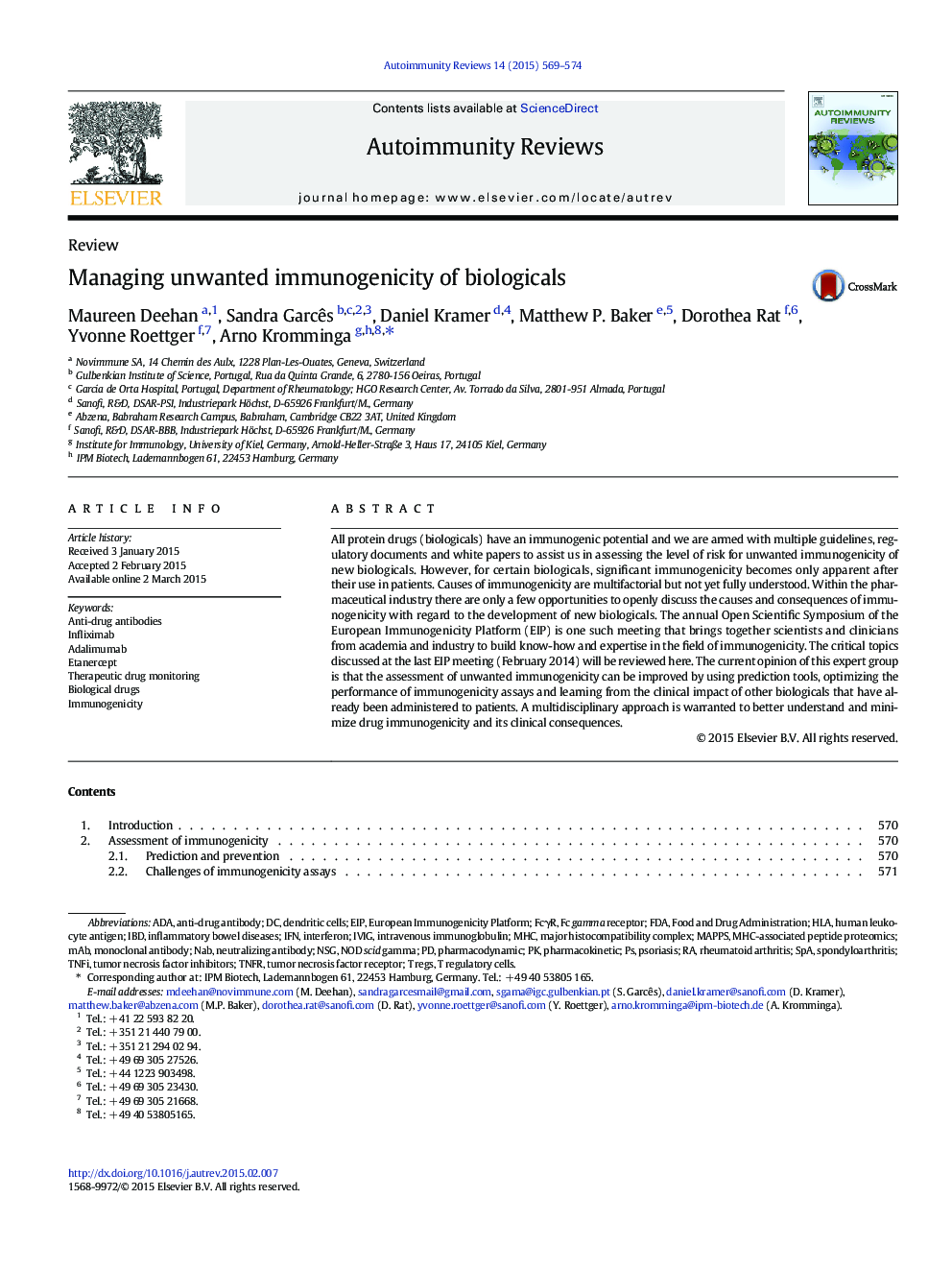| Article ID | Journal | Published Year | Pages | File Type |
|---|---|---|---|---|
| 3341358 | Autoimmunity Reviews | 2015 | 6 Pages |
•All protein drugs (biologicals) have an immunogenic potential, which may affect the efficacy and safety profile of the biologic.•In silico, in vitro and in vivo tools are currently available to predict immunogenicity at the very early stages of drug development, to support candidate selection. However, this prediction does not directly translate to the immunogenicity observed in clinical practice.•Improved assays have been developed to assess ADA, which despite some technical limitations are important to monitor ADA responses in patients.•Immunogenicity assessment in clinical practice represents a powerful tool to create safer and more cost-effective therapeutic strategies. In parallel, such immune-monitoring will provide important information to help us understand the human immune response to biologic therapies.
All protein drugs (biologicals) have an immunogenic potential and we are armed with multiple guidelines, regulatory documents and white papers to assist us in assessing the level of risk for unwanted immunogenicity of new biologicals. However, for certain biologicals, significant immunogenicity becomes only apparent after their use in patients. Causes of immunogenicity are multifactorial but not yet fully understood. Within the pharmaceutical industry there are only a few opportunities to openly discuss the causes and consequences of immunogenicity with regard to the development of new biologicals. The annual Open Scientific Symposium of the European Immunogenicity Platform (EIP) is one such meeting that brings together scientists and clinicians from academia and industry to build know-how and expertise in the field of immunogenicity. The critical topics discussed at the last EIP meeting (February 2014) will be reviewed here. The current opinion of this expert group is that the assessment of unwanted immunogenicity can be improved by using prediction tools, optimizing the performance of immunogenicity assays and learning from the clinical impact of other biologicals that have already been administered to patients. A multidisciplinary approach is warranted to better understand and minimize drug immunogenicity and its clinical consequences.
